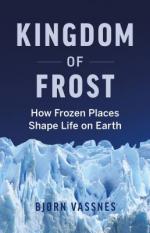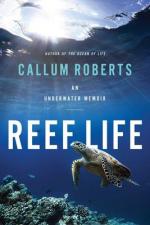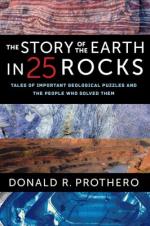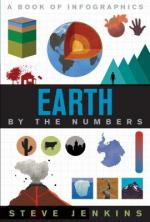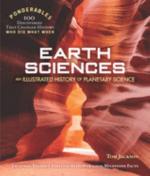October 8, 2020 | Michelle
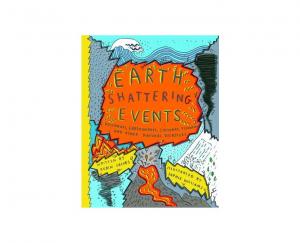
Every year, the American Geosciences Institute sponsors and promotes Earth Science Week. Time to get knee deep in our earth and all the nitty gritty things involved with it. We have a great selection of materials for you to check out. Be sure to also check out the American Geosciences Institute website for ways to celebrate Earth Science Week.
"An award-winning science journalist explains what Earth's frozen waters tell us about the past, present, and future of humanity. "The Kingdom of Frost," or what scientists call the cryosphere, refers to all of Earth's frozen waters. Glaciers, ice caps, and fields of Arctic snow—the cryosphere is vital to our survival. It supplies us with water and helps cool cities from Bangladesh to Bangkok, Los Angeles to Oslo. In this captivating, eye-opening account, esteemed Norwegian writer Bjørn Vassnes interweaves brilliant climate reporting with the fascinating story of Earth's frozen world. He draws on cultural history and anthropology to tell us how the cryosphere once helped to spark life on Earth—and how it continues to sustain us despite its shrinking size. And he answers pressing questions such as: What will happen if it all disappears?"-- Provided by publisher
A memoir by the world's leading coral reef scientist, revealing the thrill of diving and the vital science and story of these majestic reefs.
In Underland, he delivers his masterpiece: an epic exploration of the Earth's underworlds as they exist in myth, literature, memory, and the land itself.In this highly anticipated sequel to his international bestseller The Old Ways, Macfarlane takes us on an extraordinary journey into our relationship with darkness, burial, and what lies beneath the surface of both place and mind. Traveling through "deep time"--the dizzying expanses of geologic time that stretch away from the present--he moves from the birth of the universe to a post-human future, from the prehistoric art of Norwegian sea caves to the blue depths of the Greenland ice cap, from Bronze Age funeral chambers to the catacomb labyrinth below Paris, and from the underground fungal networks through which trees communicate to a deep-sunk "hiding place" where nuclear waste will be stored for 100,000 years to come.
Every rock is a tangible trace of the earth's past. The Story of the Earth in 25 Rocks tells the fascinating stories behind the discoveries that shook the foundations of geology. In twenty-five chapters?each about a particular rock, outcrop, or geologic phenomenon?Donald R. Prothero recounts the scientific detective work that shaped our understanding of geology, from the unearthing of exemplary specimens to tectonic shifts in how we view the inner workings of our planet.
Uses infographics to explore earth science, including the Earth's age, the danger of volcanoes, and global warming.
Do you want to understand the history and forces that created our planet and are still shaping it today? Through 100 pivotal milestones, this gorgeous reference book and timeline shows how our planet evolved from a disk of dust left behind by a young Sun and how it is constantly altered by events such as earthquakes, tsunamis, and volcanic eruptions. The accessible text describes the Earth's ever-changing layers and what researchers have learned about the past through fossils and about the future in the search for habitable exoplanets. At a time when human life is impacting the Earth at a noticeable rate, Earth Sciences provides a rich understanding of: 100 milestone facts, labeled Ponderables, which detail pivotal breakthroughs in geology, meteorology, oceanography, and astronomy; Stunning imagery and illustrations to help clarify key concepts; An overview of core concepts in Earth Science 101: The Basics and biographies of key scientists; A section that explores imponderable topics that researchers still don't fully understand.
Presents a tour of Earth's natural structures, weather patterns, ocean phenomena, and constantly changing features.

